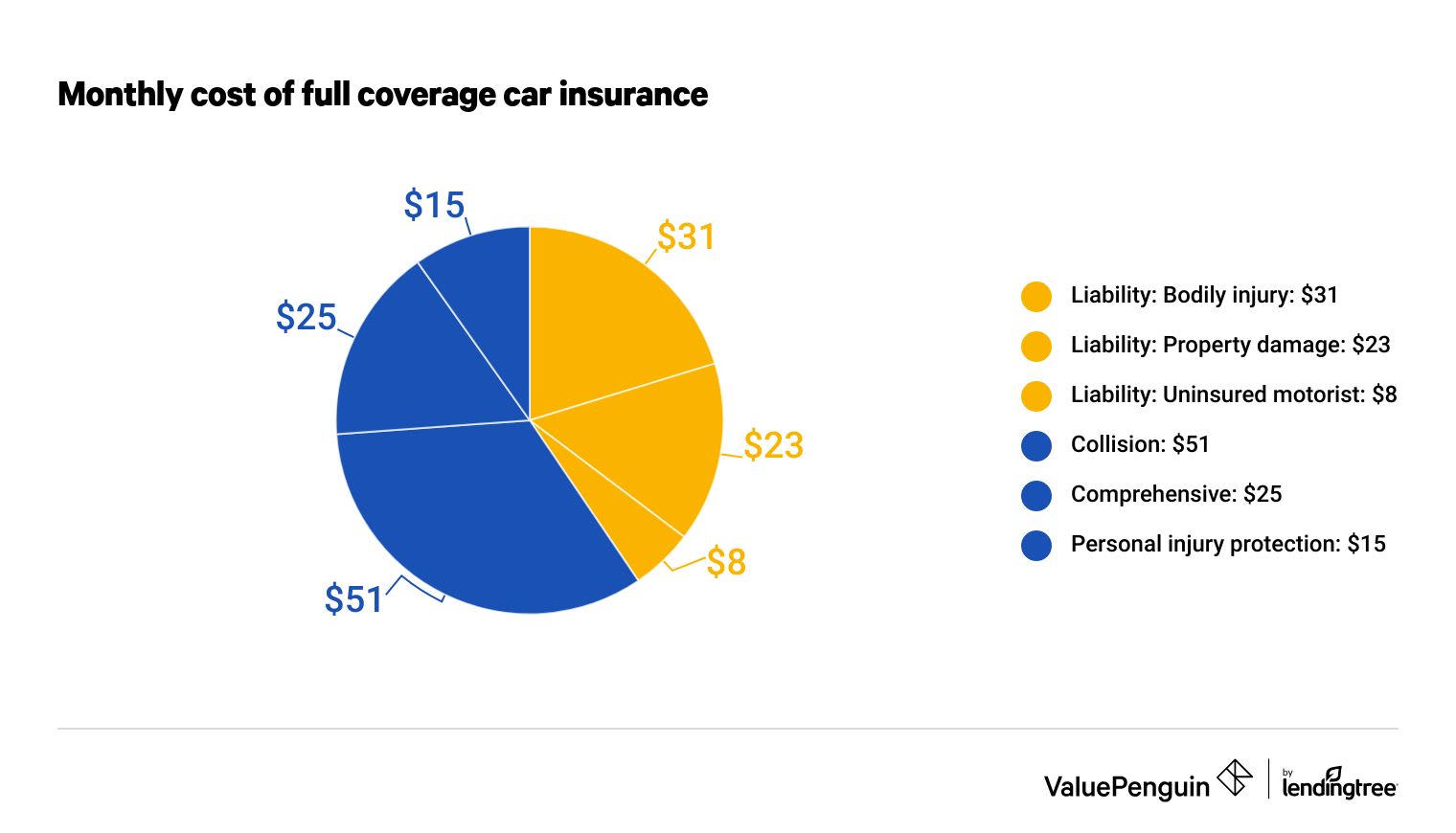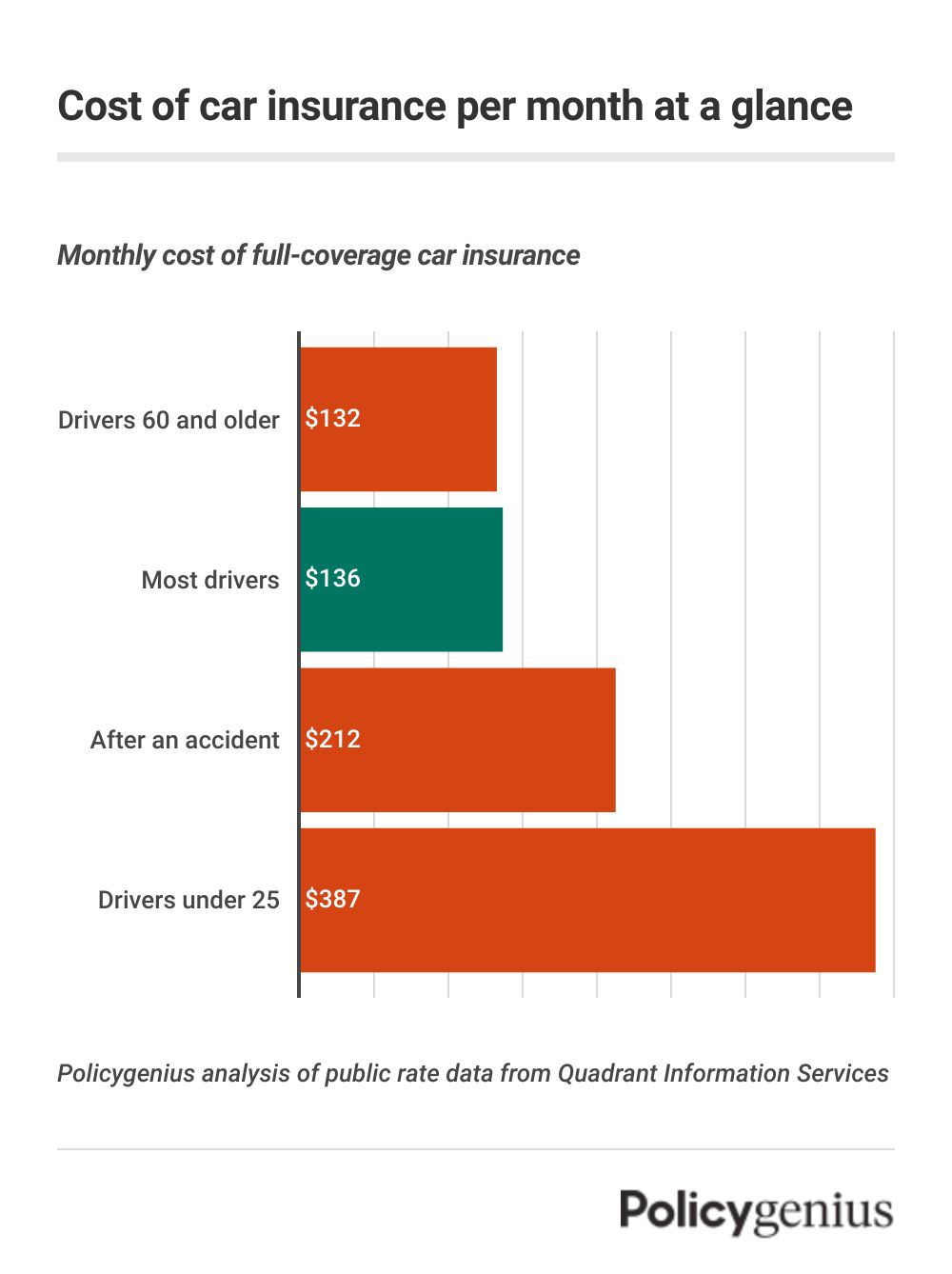
Introduction
Full coverage car insurance is a comprehensive insurance policy that provides both liability coverage and coverage for damage to your own vehicle. This type of insurance offers a higher level of protection and is often recommended for individuals who want to safeguard their investment and have peace of mind on the road.
1. What is Full Coverage Car Insurance?
Full coverage car insurance includes three main components: liability coverage, collision coverage, and comprehensive coverage. Liability coverage protects you if you cause an accident and are legally responsible for the resulting damages. Collision coverage covers repairs or replacement of your vehicle if it is damaged in a collision, regardless of fault. Comprehensive coverage protects against non-collision-related damages such as theft, vandalism, or natural disasters.
2. Why is Full Coverage Car Insurance Important?
Having full coverage car insurance provides financial protection in the event of an accident or loss. It ensures that both you and your vehicle are adequately covered, reducing your out-of-pocket expenses and potential financial strain. Without full coverage, you may be responsible for covering repairs or replacement costs, medical expenses, and legal fees if you are at fault in an accident.
3. Factors to Consider When Choosing Full Coverage Car Insurance
When selecting a full coverage car insurance policy, it is important to consider factors such as the deductible amount, coverage limits, and additional benefits or add-ons offered by the insurance provider. It is also essential to evaluate your specific needs, budget, and driving habits to ensure you choose a policy that provides sufficient coverage at an affordable cost.
It is advisable to compare quotes from different insurance providers and consult with a knowledgeable agent to help you make an informed decision that suits your individual needs.

Full Coverage Car Insurance Coverage Options
When it comes to protecting your vehicle, full coverage car insurance offers comprehensive protection and peace of mind. Full coverage typically includes several key coverage options that go beyond the basic liability coverage. Here are three essential coverage options to consider:
1. Collision Coverage
Collision coverage helps pay for repairs or replacement if your vehicle is damaged or totaled in an accident, regardless of fault. This coverage is particularly important if you have a newer car or a vehicle with a higher value.
2. Comprehensive Coverage
Comprehensive coverage protects your vehicle against damage caused by non-collision events such as theft, vandalism, fire, or natural disasters. It provides financial assistance to repair or replace your car, helping you avoid significant out-of-pocket expenses.
3. Personal Injury Protection (PIP)
Personal Injury Protection (PIP) coverage pays for medical expenses, lost wages, and other costs resulting from injuries sustained in a car accident, regardless of fault. PIP coverage is especially useful if you or your passengers are injured and need immediate medical attention.
Having full coverage car insurance ensures that you have a comprehensive safety net, protecting both your vehicle and yourself from financial burdens in the event of an accident. It's essential to review your policy and consider these coverage options based on your specific needs and budget.

Benefits of Full Coverage Car Insurance
1. Protection Against Physical Damage to Your Vehicle
Having full coverage car insurance provides you with comprehensive and collision coverage, which protects your vehicle against physical damage. Whether it's due to an accident, vandalism, or natural disasters, this insurance will help cover the costs of repairs or even the replacement of your car.
2. Coverage for Theft or Vandalism
One of the significant advantages of full coverage car insurance is that it offers protection against theft or vandalism. If your car is stolen or damaged by vandals, your insurance will aid in covering the expenses related to the loss or damage of your vehicle.
3. Financial Protection in Case of an Accident
If you are involved in an accident, full coverage car insurance can provide you with financial protection. It typically includes liability coverage, which assists in paying for any damages or injuries sustained by others involved in the accident. Medical payments coverage may also be included to help with your own medical expenses, along with coverage for uninsured or underinsured motorists.
Having full coverage car insurance offers peace of mind knowing that you have comprehensive protection against unfortunate incidents that may occur. It is crucial to review your policy and understand the coverage limits and deductibles to ensure you have adequate protection for your specific needs.

Determining Factors of Full Coverage Car Insurance Premiums
1. Age and Driving Experience
When it comes to full coverage car insurance, premiums are influenced by various factors. One crucial factor is the driver's age and driving experience.
Insurance companies consider younger drivers to be riskier to insure due to their lack of experience on the road. As a result, they often face higher insurance premiums. Conversely, older drivers with more years of driving experience tend to have lower premiums.
2. Vehicle Type and Value
The type and value of the vehicle you drive also play a significant role in determining your insurance premiums. Insurance companies take into account factors such as the make, model, year, and safety features of your car. Expensive or luxury vehicles generally have higher premiums, as they may require costlier repairs or be attractive targets for theft.
3. Driving Record
Your driving record is another essential factor in calculating full coverage car insurance premiums. Insurance companies assess your history of accidents, traffic violations, and claims. Drivers with a clean record can receive lower premiums, as they are seen as less likely to be involved in accidents.
4. Credit History
Believe it or not, your credit history can affect your car insurance premiums. Insurance companies often use credit-based insurance scores to predict the likelihood of policyholders filing claims. Those with good credit scores may be rewarded with lower premiums, while those with poor credit may face higher rates.
In conclusion, factors such as age, driving experience, vehicle type, driving record, and credit history all contribute to the determination of full coverage car insurance premiums. It's important to be aware of these factors when seeking insurance coverage and to maintain a favorable driving record to potentially reduce your premiums.

